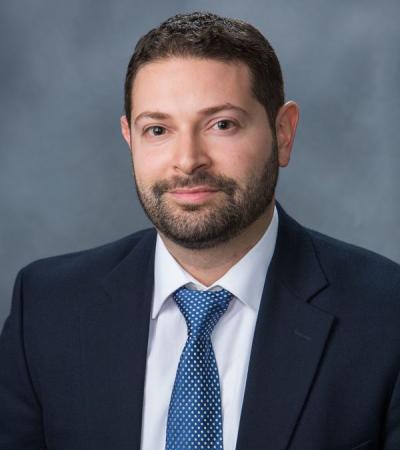JOIN VIRTUALLY! Simon Bolívar in Angostura: Navigating the Shorelines of Liberty

"Simon Bolívar in Angostura: Navigating the Shorelines of Liberty"
Alejandro Castrillón
PhD student in Political Theory and International Relations
Kellogg Doctoral Student Affiliate
* Please note the new time for this event
Alejandro Castrillón presents his dissertation chapter, "Simon Bolívar in Angostura: Navigating the Shorelines of Liberty," for feedback.
The full dissertation focuses on the political thought of Simón Bolívar as represented by two of his constitutional projects: the Angostura draft constitution (1819) and the Bolivian Constitution (1826). It argues that Bolívar’s political projects attempt to synthesize two late 18th and early 19th century political models. The first is the republican model, which stems from the communal political arrangement of small city-states and emphasizes the importance of political virtue. The second is the liberal model, based on England, which stresses political liberty as a result of carefully balanced government institutions and securing individual rights. Bolívar’s thought reconfigures modern republicanism, departing from the familiar evolution of liberal democracies in the United States and Western Europe.
The first half of the dissertation analyzes Bolívar's rationale for the institutional design of the Angostura Constitutional draft. In short, it explores how Bolivar sought to reconcile a government devoted to moral virtue and individual liberty. The chapter to be presented is a redacted version that seeks to understand Bolivar's conception of liberty and how he thought it should be protected via political institutions. Much is left out (the chapter is long .. close to 60 pgs.) regarding Bolívar's debt to Rousseau and Montesquieu, as well as sections that need to be further developed regarding slavery. Instead, the chapter is redacted to focus on Bolivar's proposal for a hereditary senate and its relation to a french theoretical concept called the neutral power. It is the section the author personally has the most questions about, with hope to gain greater insights from participants' comments and questions.
The Latin American History Working Group brings together Latin American historians—both faculty and graduate students—for serious, extended, and creative intellectual exchange. Monthly meetings feature paper presentations by faculty members, graduate students, and invited scholars. Encouraging an interdisciplinary approach, the group aims to strengthen the growing community of Latin American historians at Notre Dame, to professionalize its graduate students, and to host notable scholars in the field at the University.
Cochairs: Ted Beatty, Karen Graubart, and Jaime Pensado
Alejandro Castrillón
Former Kellogg Dissertation Year Fellow Alejandro Castrillon is assistant professor of political science at Baylor University. His research focuses on political theory, from ancient political thought to modern republicanism with a specialization in Latin America...
Read More





